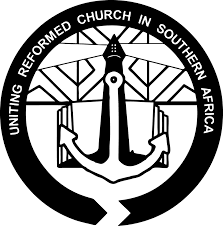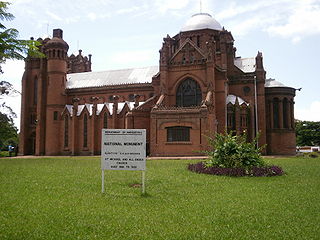Related Research Articles

Presbyterianism is a Reformed (Calvinist) Protestant tradition named for its form of church government by representative assemblies of elders. Though there are other Reformed churches that are structurally similar, the word Presbyterian is applied to churches that trace their roots to the Church of Scotland or to English Dissenter groups that formed during the English Civil War.

The Church of Scotland is a Presbyterian denomination of Christianity that holds the status of the national church in Scotland. It is one of the country's largest, having 259,200 members in 2023. While active membership in the church has declined significantly in recent decades, the government Scottish Household Survey found that 20% of the Scottish population, or over one million people, identified the Church of Scotland as their religious identity in 2019. The Church of Scotland's governing system is presbyterian in its approach, therefore, no one individual or group within the church has more or less influence over church matters. There is no one person who acts as the head of faith, as the church believes that role is the "Lord God's". As a proper noun, the Kirk is an informal name for the Church of Scotland used in the media and by the church itself.

The Free Church of Scotland is a Scottish denomination which was formed in 1843 by a large withdrawal from the established Church of Scotland in a schism known as the Disruption of 1843. In 1900, the vast majority of the Free Church of Scotland joined with the United Presbyterian Church of Scotland to form the United Free Church of Scotland. In 1904, the House of Lords judged that the constitutional minority that did not enter the 1900 union were entitled to the whole of the church's patrimony, the Free Church of Scotland acquiesced in the division of those assets, between itself and those who had entered the union, by a Royal Commission in 1905. Despite the late founding date, Free Church of Scotland leadership claims an unbroken succession of leaders going back to the Apostles.

The Presbyterian Church of Eastern Australia (PCEA) is a small Presbyterian denomination which was formed in Sydney on 10 October 1846 by three ministers and a ruling elder. As of December 2012 it consists of 13 pastoral charges with a total of 17 regular preaching points, 12 serving ministers, 1 minister without charge, 6 retired ministers and a community of about 800.
The World Alliance of Reformed Churches (WARC) was a fellowship of more than 200 churches with roots in the 16th century Reformation, and particularly in the theology of John Calvin. Its headquarters was in Geneva, Switzerland. They merged with the Reformed Ecumenical Council in 2010 to form the World Communion of Reformed Churches.
The Free Church of Scotland is a conservative evangelical Calvinist denomination in Scotland. It is the continuation of the original Free Church of Scotland that remained outside the union with the United Presbyterian Church of Scotland in 1900, and remains a distinct Presbyterian denomination in Scotland.

The Uniting Reformed Church in Southern Africa was formed by the union of the black and coloured Nederduits Gereformeerde Kerk mission churches.
John William Arthur was a medical missionary and Church of Scotland minister who served in British East Africa (Kenya) from 1907 to 1937. He was known simply as Doctor Arthur to generations of Africans.

The Uniting Presbyterian Church in Southern Africa (UPCSA) was formed and constituted in 1999 as the outcome of the union between the Reformed Presbyterian Church in Southern Africa (RPCSA) and the Presbyterian Church of Southern Africa (PCSA).

The Reformed Presbyterian Church of North America (RPCNA) is a Presbyterian church with congregations and missions throughout the United States, Japan, and Chile. Its beliefs—held in common with other members of the Reformed Presbyterian Global Alliance—place it in the conservative wing of the Reformed family of Protestant churches. Below the Bible—which is held as divinely inspired and without error—the church is committed to several "subordinate standards," together considered with its constitution: the Westminster Confession of Faith and Larger and Shorter Catechisms, along with its Testimony, Directory for Church Government, the Book of Discipline, and Directory for Worship.

The Reformed Churches in South Africa is a Christian denomination in South Africa that was formed in 1859 in Rustenburg. Members of the church are sometimes referred to as Doppers.

The Church of Central Africa Presbyterian (CCAP) is a Presbyterian denomination. It consists of five synods: one in Zambia, one in Zimbabwe and three in Malawi – Livingstonia Synod in the north of the country, Nkhoma Synod in the centre, and Blantyre Synod in the south.

The Reformed Presbyterian Church of Scotland is a small, Scottish, Presbyterian church denomination. Theologically they are similar to many other Presbyterian denominations in that their office-bearers subscribe to the Westminster Confession of Faith. In practice, they are more theologically conservative than most Scottish Presbyterians and maintain a very traditional form of worship. In 1690, after the Revolution, Alexander Shields joined the Church of Scotland, and was received along with two other ministers. These had previously ministered to a group of dissenters of the United Societies at a time when unlicensed meetings were outlawed. Unlike these ministers, some Presbyterians did not join the reconstituted Church of Scotland. From these roots the Reformed Presbyterian Church of Scotland was formed. It grew until there were congregations in several countries. In 1876 the majority of Reformed Presbyterians, or RPs, joined the Free Church of Scotland, and thus the present-day church, which remained outside this union, is a continuing church. There are currently Scottish RP congregations in Airdrie, Stranraer, Stornoway, Glasgow, and North Edinburgh. Internationally they form part of the Reformed Presbyterian Communion.

The Reformed Presbyterian Global Alliance is a communion of Presbyterians originating in Scotland in 1690 when its members refused to conform to the establishment of the Church of Scotland. The Reformed Presbyterian churches collectively have approximately 9,500 members worldwide in Northern Ireland, the Republic of Ireland, Scotland, France, the United States of America, Canada, Japan, South Sudan, and Australia.
The Free Church in Southern Africa grew out of the work of the missionaries of the Glasgow Missionary Society (c.1823), and after 1843 came under the care of missionaries of the Free Church of Scotland. Historically, the church has served mainly the Xhosa speaking people in eastern and western Cape region, stretching from Cape Town to Transkei. In 1900 the majority of the Free Church of Scotland joined with the United Presbyterian Church (Scotland) to form the United Free Church of Scotland. All the Free Church missionaries joined the United Free Church, leaving no missionaries to serve the many Xhosa Christians who remained faithful to the old Free Church. In 1908, in response to an appeal from the Xhosa church, Rev Alexander Dewar was appointed to King William's Town, and, for the next thirty-five years, served the church until he died in 1943. Four other missionaries, for longer or shorter periods, served alongside Mr Dewar. In 1944 the Rev Joseph McCracken of the Irish Evangelical Church served with others as Mr Dewar's successors. McCracken retired in 1974 and died in South Africa in 1987. In 1982 the church become independent, though remains in close connection with the Free Church of Scotland.

Scottish Protestant missions are organised programmes of outreach and conversion undertaken by Protestant denominations within Scotland, or by Scottish people. Long after the triumph of the Church of Scotland in the Lowlands, Highlanders and Islanders clung to a form of Christianity infused with animistic folk beliefs and practices. From 1708 the Society in Scotland for Propagating Christian Knowledge (SSPCK) began working in the area. In 1797 James Haldane founded the non-denominational Society for the Propagation of the Gospel at Home. Dozens of lay preachers, divinity students and English preachers were sent to the region. In the early nineteenth century a variety of organisations were formed to support evangelism to the region.
The Maranatha Reformed Church of Christ (MRCC) is a Christian Reformed denomination founded in 1923, in South Africa, by former members of the Free Church of Scotland, due to disputes relating to the administration of the sacraments.
References
- ↑ Duncan, Graham A. (2022). Bantu Presbyterian Church of South Africa: a history of the Free Church of Scotland Mission. Scottish religious cultures. Historical perspectives. Edinburgh: Edinburgh University Press. ISBN 978-1-3995-0393-8. OCLC 1298383439.
- ↑ "Address data base of Reformed churches and institutions". www.reformiert-online.net.